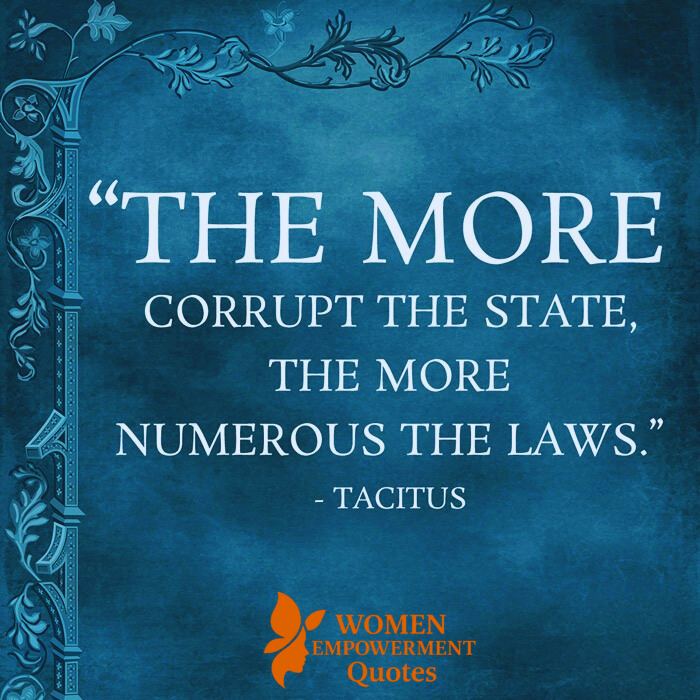
The Roman historian Tacitus once wrote, “The more corrupt the state, the more numerous the laws.” With those few words, he revealed a painful truth about power, morality, and the illusion of justice. His ancient observation speaks volumes even today, in a world overwhelmed by legal codes, regulations, and loopholes—often serving those who created them.
When corruption takes root in a nation, its leaders rarely govern with transparency. Instead, they craft dense layers of law to mask their misdeeds. Rules multiply not to uphold justice, but to protect the powerful. A legal maze is formed—not to guide citizens, but to confuse them. Meanwhile, innovation, freedom, and fairness slowly suffocate beneath the weight of bureaucracy.
In such societies, laws are no longer tools for order or protection. They become weapons—used selectively, bent to favor elites, and enforced unevenly. While the influential maneuver through legal gray zones, everyday people face harsh penalties for small infractions. The law becomes something to fear, not trust.
But the cure for corruption isn’t the writing of more laws. It’s the renewal of moral courage. We must nurture a culture where truth matters more than control. Where leaders are accountable not only to institutions, but to conscience. Where integrity is not a campaign slogan, but a daily discipline.
The strength of a nation is not found in its law books, but in the values of its people. The legacy of Tacitus reminds us that a healthy society is built on fairness, empathy, and unwavering commitment to the common good.
To move forward, we must look inward. We must demand more from those in power—and even more from ourselves. Only then can we rebuild trust, restore justice, and ensure that laws serve people, not power.
The Timeless Voice of Tacitus
Tacitus lived through a Rome shaped by tyranny and turmoil. Yet through his writing, he became a quiet rebel—a defender of truth in an age of fear. His works, including the Annals and Histories, weren’t just records of events; they were warnings written in ink and fire.
He showed the dangers of unchecked power, the fragility of freedom, and the slow decay that sets in when morality is replaced with ambition. Generations of leaders, thinkers, and reformers—from the Enlightenment to today—have turned to his wisdom as both a mirror and a map.
In times like ours, when public trust wears thin and leadership often falters, Tacitus calls us back to a higher standard. To lead with virtue. To serve with humility. And to govern with justice, not convenience.
Timeless Reminders:
-
“No government power can be abused long. Mankind will not bear it.” – Samuel Johnson
-
“A corrupt bureaucracy is one of the greatest catalytic ingredients for revolution.” – Robert Ardrey
-
“Justice and Power must be brought together, so that whatever is just may be powerful, and whatever is powerful may be just.” – Blaise Pascal